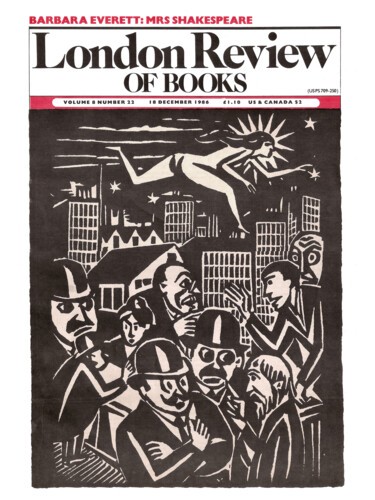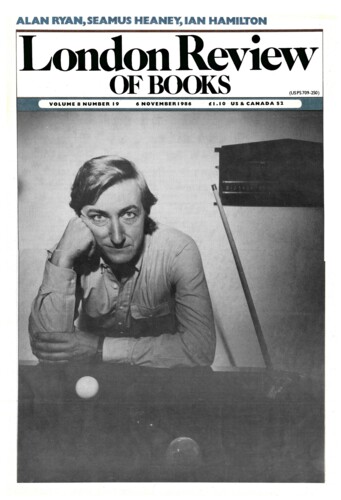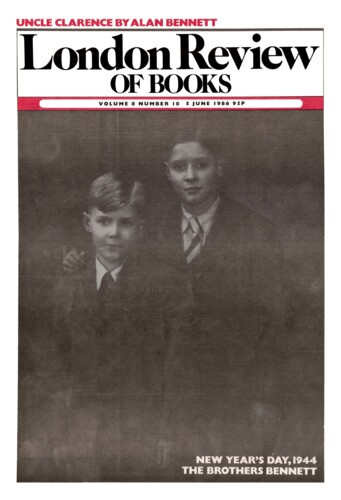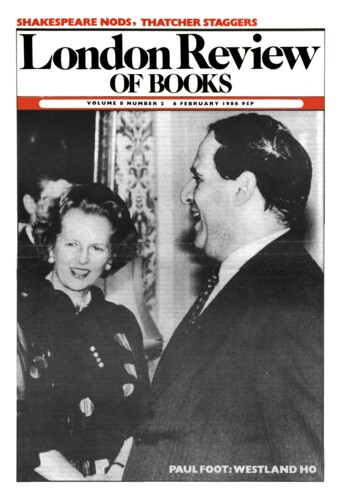Gentlemen Travellers
Denis Donoghue, 18 December 1986
‘I am assuming,’ Paul Fussell said in Abroad: British Literary Travelling Between the Wars (1980), ‘that travel is now impossible and that tourism is all we have left.’ To be a traveller, you have to move about alone, eschew standard procedures, avoid the commonplace of maps, and hold yourself ready for adventure. The tourist class was invented by Thomas Cook when he assembled an excursion to the Paris Exposition in 1855. Tourists change their places in groups, live as comfortably as possible, take pleasure in gregariousness, obey injunctions, keep to the main roads, and fulfil plans made by tour-promoters in advance. The appurtenances of a tourist include passports and visas, travellers’ cheques, Michelin and other guidebooks, pills to prevent sea-sickness or air-fright, and phrase-books in rare cases of need. Cameras are customary, but not essential. Movie-cameras may be used, but natives sometimes resent them.




